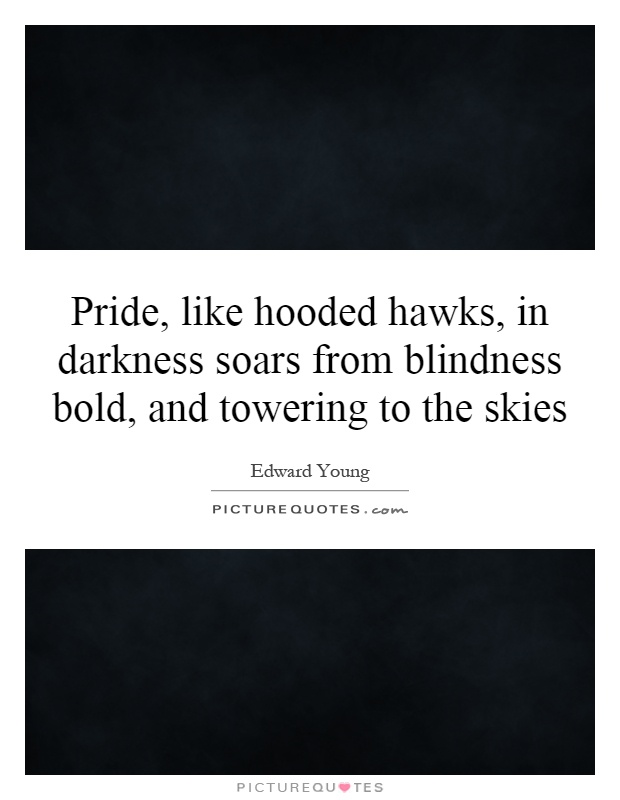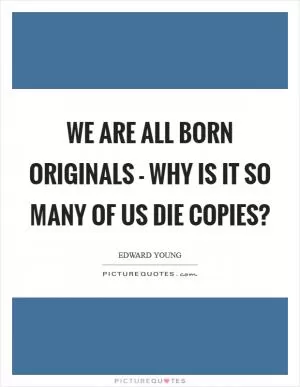Pride, like hooded hawks, in darkness soars from blindness bold, and towering to the skies

Pride, like hooded hawks, in darkness soars from blindness bold, and towering to the skies
Edward Young was an English poet known for his works that often explored themes of pride, ambition, and the human condition. In his poem "Night Thoughts," Young delves into the complexities of human nature, particularly the destructive nature of pride. The line "Pride, like hooded hawks, in darkness soars from blindness bold, and towering to the skies" encapsulates the idea that pride can blind individuals to their own faults and lead them to great heights of arrogance.The comparison of pride to hooded hawks soaring in darkness is a powerful image that highlights the stealthy and dangerous nature of pride. Like a hawk hidden under a hood, pride can lurk unseen, waiting to strike at any moment. It is a force that can propel individuals to great heights, but also blind them to the consequences of their actions.
Young suggests that pride can lead individuals to tower to the skies, symbolizing the lofty ambitions and grandiose self-perceptions that pride can foster. However, this ascent is not without its dangers. Just as a hawk soaring to great heights is vulnerable to attack from above, those consumed by pride are at risk of a fall from grace.
The phrase "from blindness bold" emphasizes the audacity and recklessness that often accompany pride. When individuals are blinded by their own self-importance, they become bold in their actions, heedless of the potential consequences. This blindness prevents them from seeing the truth about themselves and their place in the world, leading to a false sense of superiority and invincibility.
Overall, Young's depiction of pride as a hooded hawk soaring in darkness serves as a cautionary tale about the dangers of unchecked arrogance and ambition. It is a reminder that pride, if left unchecked, can lead individuals to great heights only to come crashing down in a spectacular fall. Through his evocative imagery and insightful commentary, Young encourages readers to reflect on their own pride and strive for humility and self-awareness.












 Friendship Quotes
Friendship Quotes Love Quotes
Love Quotes Life Quotes
Life Quotes Funny Quotes
Funny Quotes Motivational Quotes
Motivational Quotes Inspirational Quotes
Inspirational Quotes